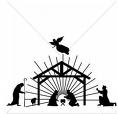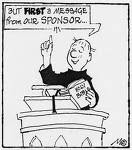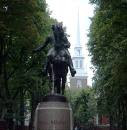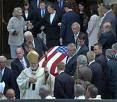
I was the lector for my parish’s 8:30 AM Mass. Today being the Sunday of the Holy Family, the lectionary offers a selection of various readings to choose from. My pastor selected the reading from the Book of Sirach, the above quote being the last paragraph of the reading.
I do not know if the Holy Spirit was trying to say something to me, but this reading has personal significance for me. My father came down with a case of pneumonia right after Thanksgiving and is still in the hospital. Fortunately, he has gotten through it, but he still has a long road to recovery. He is incredibly thin and weak, but in good spirits. It has been difficult to see my parents’ age over the past few years, but especially my father over these recent weeks. Both parents are going to need a lot of support from my siblings and me.
This puts us in the company of many “baby boomers,” who find themselves caring for parents who are living longer, but are developing more illnesses and weaknesses. The media reports on the strains this puts many families through. This is when faith communities need to step up and provide the social and spiritual support that family caregivers need. We need the opportunity to gather and share our struggles, frustrations and joys. Individually, we need to give ourselves time for prayer, to open up to God, pour out our anger, fears and despair; then open our hearts to God’s healing love.
“Beloved, if our hearts do not condemn us, we have confidence in God and receive from him whatever we ask, because we keep his commandments and do what pleases him.” (From the First Letter of Saint John)
Experiencing God’s love enables us in turn to love; to be compassionate and patient. Then we will truly be able to honor our parents.
“And whatever you do, in word or in deed, do everything in the name of the Lord Jesus, giving thanks to God the Father through him.” (From the Letter of St. Paul to the Colossians)


































